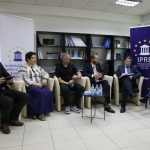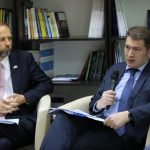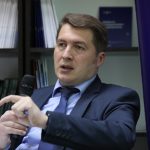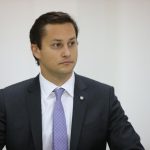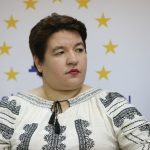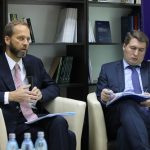Moldova’s EU candidate status: Next steps towards opening accession negotiations with the European Union
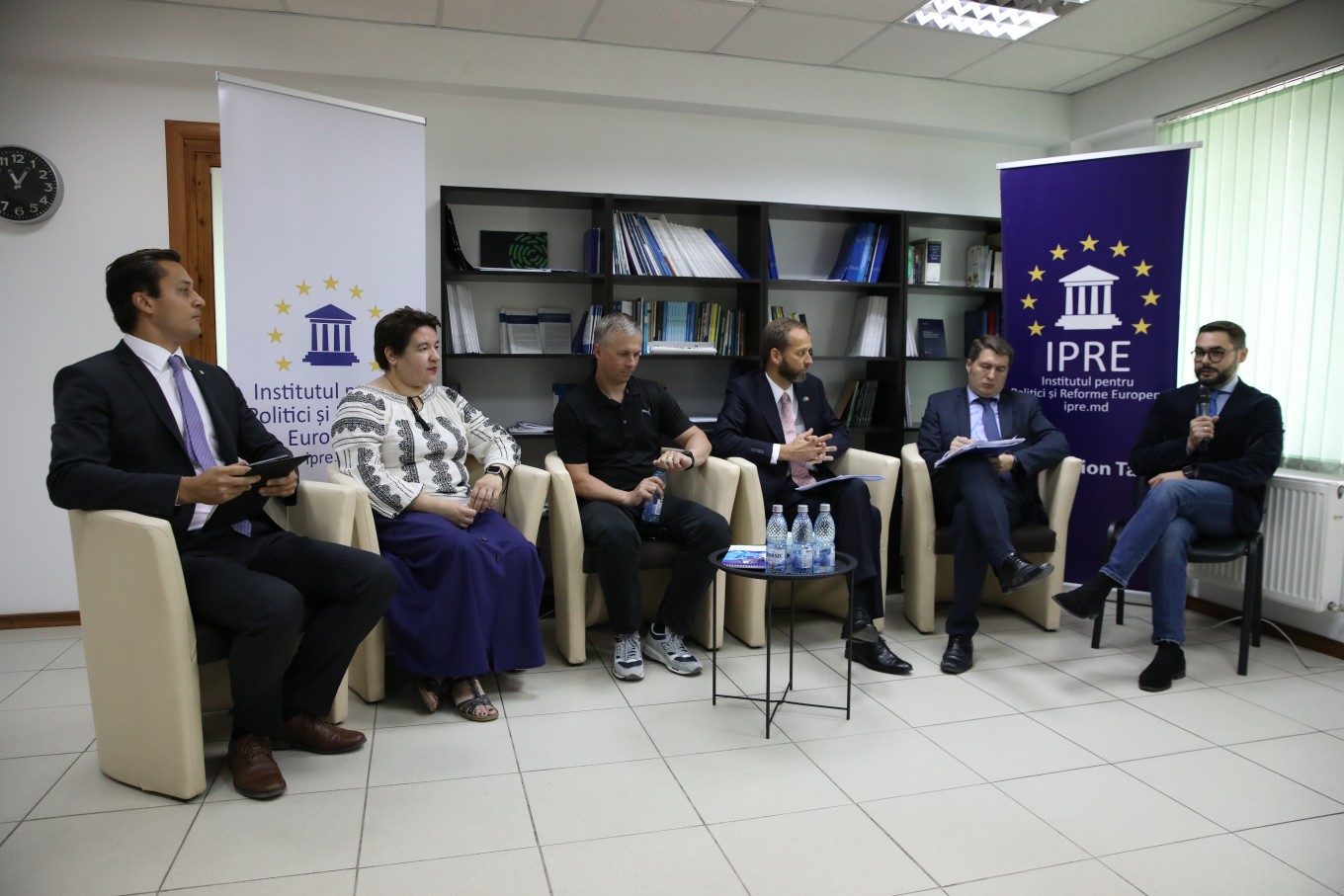
In the framework of the initiative #ThinkTanks4EUMembership initiative, the Institute for European Policies and Reforms (IPRE), in partnership with Expert-Grup, CRJM, the National Platform of the Eastern Partnership Civil Society Forum and with the support of the Soros Foundation Moldova organized on Wednesday, July 13, 2022, the public event “Moldova’s EU candidate status: Next steps towards opening accession negotiations with the European Union”. The event was organized in a hybrid format with the participation of the representatives of the Moldovan civil society, public authoritative, experts and diplomats from the EU, Ukraine and Georgia,
The speakers at the event, which was moderated by Iulian Groza, IPRE Executive Director, referred to the key priorities and steps to be taken by the authorities at national level, in dialogue with the EU, as well as in cooperation with the civil society for advancing towards the opening of accession negotiations.
Further below, we propose some of the main speeches of the speakers.
Janis Mazeiks, Ambassador of the European Union to the Republic of Moldova: “In connection with the next steps to be taken by the Republic of Moldova, in the context of the realistic prospect of accession to the EU, I can say that a lot depends on the actions of the authorities and the regional context. Extremely important is the determination and will of the governments because it is clear that some requirements take several years to achieve them, which requires successive governments. A large-scale European consensus must be built at national level. The planning of the steps to be taken and the work with the Moldovan authorities will be organized in stages. At the same time, a constant reporting of the situation is also necessary. I would like to mention that this is not just about moving forward on the nine areas mentioned in the Commission’s opinion, but about preparing the state as a whole for accession to the EU. The European Union offers new instruments of support for the Republic of Moldova, and much will depend on how these will be used by the authorities.”
Vladimir Cuc, State Secretary, Ministry of Foreign Affairs and European Integration: “Both the Moldovan authorities and the EU institutions, at the current stage, reflect on the ways of organizing the cooperation in the future, on the setting of priorities. We will pay special attention to the nine areas highlighted in the opinion of the European Commission, the action plan being already in the process of elaboration. In parallel, we are going to advance on the entire spectrum of the areas covered by the Association Agreement. Yesterday, we received a clarification from the European Commission that the evaluation of these conditionalities will be part of the 2023 Enlargement Package. This means that the European Commission’s detailed report on the Republic of Moldova will appear approximately in October next year.”
Adrian Lupusor, Executive Director, Expert-Grup, Facilitator of FSC PaE: “Indeed, the EU candidate status comes with some very important and complex conditionalities. Some, such as the “deoligarchization” of the country, are practically aimed at ensuring the integrity of the economic and financial system of the state, cannot be achieved in a single year. These points require extensive reforms and the consolidation of institutions, and it is also necessary to identify financial resources to remunerate people who will work within the ministries and public institutions in charge of implementing the reforms. Secondly, the way in which financial resources are allocated to economic agents, such as the public procurement mechanism or subsidies in agriculture, must be changed. Another major priority is the “dezoffshorization” of the country, which is in direct correlation with the objective of “deoligarchization”. I believe that the EU will place particular emphasis on the impact of reforms, not on laws and strategies. Thus, we need a consolidated action plan with measures focusing on the overall implementation of the Association Agreement as well as the prioritisaiton on the conditionalities. The EU candidate status is a success of Moldovan foreign policy, but from now on our success on the accession to the EU depends very much on our internal policy.”
Vladislav Gribincea, President, Center for Legal Resources of Moldova (LRCM): “The decision of 23-24 June represents the chance of the Republic of Moldova to become a member state of the European Union. The decision is a one that comes with conditions outlined in nine points that must be evaluated by the end of this year. Four out of nine conditions refer to the justice sector, where implementation usually more challenging. Civil society wants these reforms to be coordinated and consistent, to follow a certain logic, especially since these points imply achievable conditions for the state authorities. If these nine conditions are not met, accession negotiations will not to be opened. I can propose four priority measures, namely: Creation of self-administration bodies for judges and prosecutors; adopt a law on the SCM and a law on pre-veeting; Reform of anticorruption institutions; the judiciary must make progress in finalizing the cases. These are the solutions that should be implemented first and foremost to move to another stage in the accession process.”
Natalia Camburian, Director, Good Governance Department, Soros Foundation-Moldova: “It is necessary to have an action plan, but it is very important to focus on the results of these plans and strategies. It should be noted that the process that has begun now is not only aimed at achieving EU accession but will also involve the qualitative improvement of the lives of the citizens of the Republic of Moldova, including the presence of an independent judiciary, a resilient economic system. With regard to the steps to be taken, I believe that the state has a very limited time to respond to these conditionalities, which requires an exceptional mobilization on the part of the authorities.”
For more details you can watch in replay the live broadcast in Romanian here and English here.
The event is organized within the project “Technical assistance to the MFAEI in the evaluation process of the Republic of Moldova for obtaining the EU candidate status” implemented by the Institute for European Policies and Reforms (IPRE), in cooperation with Expert-Grup, CRJM and with the financial support of the Soros Foundation Moldova.

